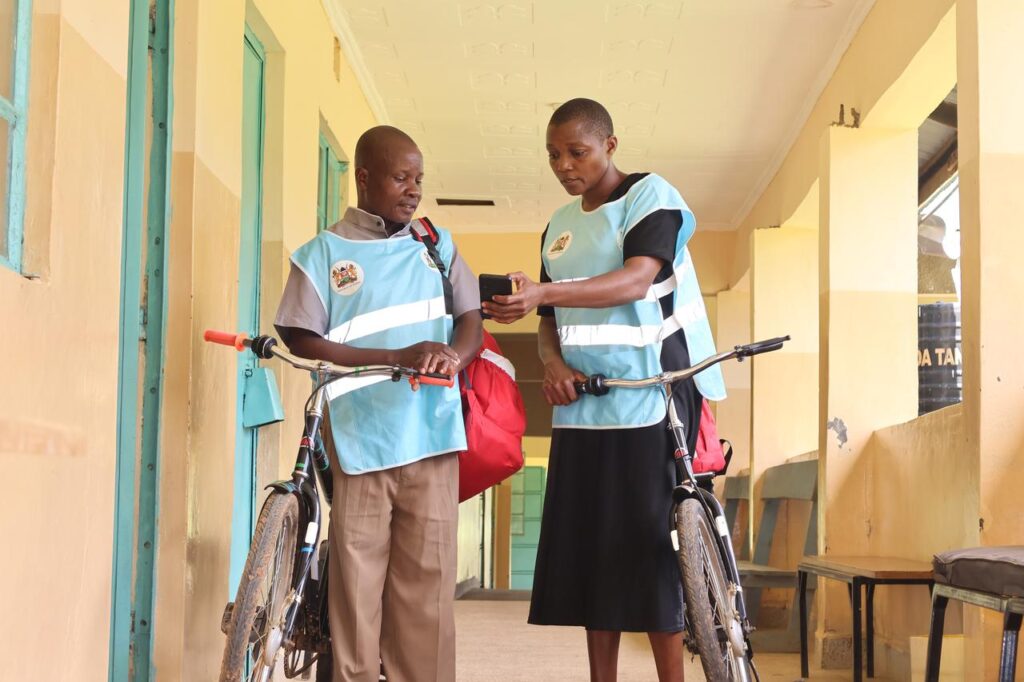At the recently concluded Africa Health Agenda International Conference (AHAIC) 2025 in Kigali, Rwanda, mobility emerged as a critical yet often overlooked component of community health work. Despite significant investments in training, equipping, digitizing, and remunerating community health workers (CHWs), many still face a major barrier—long and exhausting travel distances on foot. The lack of adequate mobility solutions significantly limits the efficiency and reach of CHWs, affecting healthcare delivery in rural areas. Addressing this challenge could transform healthcare access across the continent.
In many rural African communities, CHWs serve as the primary link between people and essential health services. They provide critical care such as malaria tests, maternal health support, family planning guidance, and vaccinations. However, long distances and challenging terrain often mean that they can only reach a limited number of households each day. This reduces their ability to conduct timely follow-ups, respond to emergencies, and ensure consistent healthcare delivery. Mobility poverty remains a significant obstacle, with CHWs spending more time walking than providing medical assistance.
During a panel discussion at AHAIC 2025, Idah Mumba, a CHW from Zambia’s Malaria Elimination Program, shared her personal struggles. She serves 224 households, often walking miles under harsh weather conditions to deliver healthcare services. The introduction of bicycles through a partnership between Amref Health Africa and World Bicycle Relief (WBR) significantly changed her work. With a bicycle, she can visit more families in a shorter time, respond swiftly to emergencies, and provide continuous care. “With a bicycle, I can now reach more families and deliver care on time,” Idah noted, emphasizing the life-changing impact of mobility on healthcare delivery.
The importance of mobility in healthcare was further highlighted by Anthony Gitau, Johnson & Johnson’s Director of Program Delivery and Impact for Africa and the Middle East. He pointed out that CHWs are a crucial part of healthcare systems, yet many operate under extremely difficult conditions. With a global shortage of six million healthcare workers—two million of whom are CHWs—supporting their mobility is key to achieving Universal Health Coverage (UHC). Gitau also referenced the African Frontline First (AFF) initiative, co-founded by Johnson & Johnson and the Skoll Foundation, which has raised $25 million to strengthen Africa’s community health workforce. He shared the story of Esther, a CHW from Kenya, who walks several kilometers between households. “When someone has to cover 5 km between households, how can we make it easier for them?” he asked, stressing the need for sustainable transportation solutions.
Malawi’s approach to tackling CHW mobility challenges was also discussed at the conference. Precious Phiri from the Malawi Public Health Division explained that their government has prioritized CHW motivation and transport. With support from Amref Health Africa and the Red Cross, policies now focus on purchasing durable bicycles and introducing motorcycles to improve supply chain efficiency. This strategy has made a significant impact on healthcare delivery by ensuring CHWs can reach their patients without unnecessary delays.
World Bicycle Relief, which has distributed over 868,000 bicycles globally, has been instrumental in improving CHW productivity. According to Maureen Kolenyo, WBR’s East Africa Regional Director, CHWs equipped with bicycles in Zambia reported a 63 percent increase in productivity. This improvement has led to better maternal and child health outcomes, as well as more efficient disease prevention efforts. “Bicycles are affordable, efficient, have a low impact on the environment, and are easy to use. We have insurmountable evidence to show that they transform healthcare delivery,” Kolenyo stated. Since its founding in 2005, World Bicycle Relief has distributed more than 191,830 Buffalo Bicycles to health workers in 10 countries, significantly boosting healthcare accessibility.
The session concluded with a strong consensus on the urgent need to address mobility challenges in order to enhance healthcare delivery. Equipping CHWs with bicycles is a cost-effective and sustainable solution that empowers them to serve their communities more effectively. As demonstrated by Idah’s experience, mobility is not just a matter of convenience—it is a crucial factor in achieving health equity and improving health outcomes across Africa. By investing in mobility solutions such as bicycles, health systems can bridge the gap between healthcare providers and communities, ensuring that no one is left behind in the pursuit of Universal Health Coverage.

